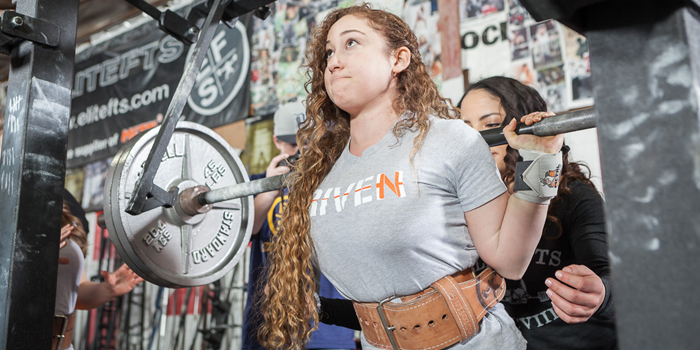
Nowadays, almost everyone has an opinion when it comes to the areas of nutrition, training, and fitness. And it seems that there are a lot of people out there using those opinions to come across as experts. Let me tell you—this can be a scary thing. Why? Because there are a lot of good people out there trying to learn more about how to get bigger, faster, stronger, healthier, etc., but there aren’t a lot of good ways for those people to tell if they are following the advice of an actual expert or a garbage guru. So, I got inspired to write about how you can better figure out whose information to take seriously and whose to toss out with the garbage.
Be Careful About Overconfidence
When I’m listening to someone who’s considered an expert, I’m always suspicious. I often sit and wonder if this person, who seems confident, is the real deal. So, what does it take for me to drop my suspicion about his or her level of expertise? If I’m in an academic setting, I start to think that someone is an expert when I hear him or her explain the limitations of a method or explain the detailed experimental ins and outs of a study. When it comes to experts in training and fitness, I start to believe that someone is an expert when I hear him or her explain how a training methodology that he or she uses isn’t ideal for a specific situation, or when he or she describes the flaws and limits of his or her specific program/exercise/diet. Across the board, in both settings, I really start to think a person is an expert when I see him or her admit that he or she doesn’t know something. Why? Because I’m a firm believer that true experts have no issue admitting what they don’t know. In fact, they aren't ashamed of what they don’t know—they embrace it!
RECENT: How to Rehab a Fracture When You’re Too Stubborn to Listen
The relationship among knowledge, perceived knowledge, and expertise is interesting. True beginners, who have no expertise, lack actual knowledge and perceived knowledge. On the other hand, true experts have a ton of knowledge, but they also perceive that they know nothing because their vast understanding of something has left them feeling as though there is so much more to learn about that specific thing.
Perhaps the relationship I described sounds straightforward, but it becomes complicated when you introduce the pseudo-expert into the mix. A pseudo-expert is one whose perceived knowledge is at its peak but whose actual knowledge pales in comparison with that of a true expert. Sadly, the pseudo-expert’s knowledge is greater than the beginner’s, which is why true beginners should be somewhat fearful of listening to these individuals. Be wary of people claiming to be experts, because as we have just learned, true experts feel as though they have much to learn. The Internet is overpopulated with these pseudo-experts who use their confidence, charisma, and knowledge to impress the beginners and simultaneously piss off actual experts. Watch out.
So, how can you spot these people if you are a beginner? Listen closely to see if they ever mention the gaps in their knowledge. See if they are comfortable talking about opinions that differ from theirs and if they can actually explain viewpoints that differ from theirs. If they can’t do these things and are running around claiming to know it all, then I probably wouldn't believe they are true experts.

Image credit: Narongsak Noinash © 123rf.com
Take Home
If someone acts as though he or she knows it all and can’t even perceive gaps in his or her knowledge, just consider his or her comments with a grain of salt, and possibly seek out another expert to listen to.
Be Curious Considering Credentials
What is an expert? By definition, it’s someone who has a very high level of knowledge in a very specific area. It has nothing to do with how many Instagram followers someone has, what the person looks like, or how convincing he or she sounds. Instead, it has everything to do with how much actual knowledge he or she has. I'll be the first to tell you that having a PhD (or an MD) does not make someone an expert on all things. When someone gets a PhD, it’s because he or she has done some type of particular research and thus has a very specific expertise. However, it does not mean that he or she has expertise on everything he or she talks about!
The same can be said about certifications. Just because someone has passed a training certification, this does not make him or her an expert in the field in which he or she received said certification. At the base level, it means that he or she has memorized/learned enough information to pass an exam. Yes, the continuing education requirements of certain certifications help to drive certified individuals to become more knowledgeable, but passing one of those exams or holding one of those certifications does not make someone an expert in periodization, technique, and performance.
Take Home
Don’t take what someone says as factual, accurate, or important information just because of his or her credentials. Dig a little deeper before deeming the person an expert. Figure out if the person’s opinion was developed in the trenches or on the sidelines, and then, start to consider what level of expertise you think he or she has.
Keep Someone Who Walks the Walk and Talks the Talk
We know the area of fitness, nutrition, and training is filled with lots of broscience and outrageous statements. But let me be the first to tell you, just because someone looks like an expert doesn’t mean that he or she actually is one. Similarly, don’t assume that having a world record makes someone an expert in understanding how to train for a specific sport.
When looking for an expert to listen to, look for someone who walks the walk and talks the talk. For example, you want an expert who’s designing your program to have actually trained through a decent amount of programming himself or herself. Look at Bryce Lewis. He’s always reading the scientific literature, training hard himself, learning from others, competing at the highest level, and advising clients. His combination of “in the trenches” experience and academic knowledge is part of what makes him an expert when it comes to powerlifting. But not every record-holding powerlifter is out there reading, experimenting on his or her clients, and continuing to expand his or her knowledge base. There are pseudo-experts out there who think that just because they did programs, they worked, and they got world records that they are now qualified to be considered experts and slang out expertise. This is false.
The same is true when you look at the academic experts. Is the PhD you are listening to out there (or were at one point) actually training or competing to complement his or her academic knowledge in the areas of hypertrophy, recovery, and performance? Was he or she in the lab designing and implementing experiments rather than just reviewing the scientific work of other academics? I’m a firm believer that credentials need to be backed up by hands-on experience. In fact, I believe that hands-on experience is necessary to avoid misinterpreting things. Only by doing can you truly understand what it is you’re talking about. Hence, true experts have had their expertise, opinions, and viewpoints shaped by both knowledge and experience.
Take Home
Just because someone has a world record, that doesn't make him or her an expert. Just because someone has read and reviewed a bunch of literature, this also doesn't make him or her an expert. Experts are people who continue to expand their knowledge base on all fronts.
Summing it up
Next time you think someone sounds like an expert, dig a little bit deeper before you trust him or her as your go-to source for information, no matter how popular he or she is, and no matter how many letters come after his or her name. There’s a lot of BS information out there, and you owe it to yourself to know which experts are worth listening to.











2 Comments